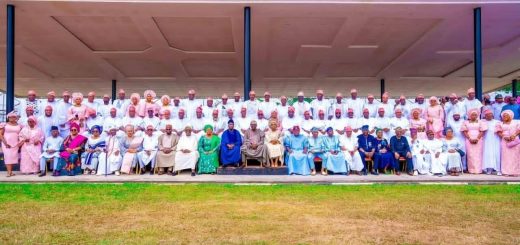Dark Side of Manipulation: How Misusing Religion Fuels Societal Darkness
by Beady Nnanna ·
Religion has historically served as a guiding force for morality, community, and personal comfort.
However, when exploited for manipulation, control and deceit, it transforms into a tool of oppression and fear, which can have devastating effects on society and its people,
In examining this misuse of religion in our society yesterday and the impart today, we can better understand how it contributes to various social issues, including crime, exploitation, laziness, poverty and moral decay.
The Deceptive Use of Religion
At the heart of many societal problems is the manipulation of religious beliefs for personal gain., control and selfish interest.
Charismatic leaders may distort sacred texts to justify unethical behaviour, appealing to followers’ fears and hopes. This deceit can lead to:
- Scams: False prophets may convince people to donate money for supposed divine causes, draining them financially and leaving them vulnerable.
- Lies: Misrepresentation of religious teachings can lead to great misunderstandings and divisions among communities, fostering animosity and mistrust.
Infusing Fear into Faith
Fear is a powerful tool in manipulation. Some religious leaders instil fear in their followers, exploiting their anxieties about sin, punishment, and the afterlife. This fear can lead to:
- Compliance: When individuals are afraid of divine retribution, they may suppress their own beliefs or morality, complying with manipulative doctrines that serve the leader’s agenda.
- Division: Fear can create an “us vs. them” mentality, leading to discrimination against non-believers or members of other faiths.
The Impact on Society
When religion is misused to deceive, control and manipulate, the consequences can be profound:
- Building Criminal Elements: In communities where religious leaders entice followers to embrace corrupt practices, criminal behaviour can flourish. For instance, “arm rubbers” (armed robbers) often justify their actions through twisted interpretations of religious texts, claiming divine sanctioning for their crimes. In reality, they exploit the trust placed in religious teachings to mask their immoral actions. many religious leaders pray for them, and collect taxes and seeds from them knowing that they are not pure in dealings and what they do.
- Exploiting Vulnerable Populations: The manipulation of faith can lead to rampant prostitution and exploitation within communities. Vulnerable individuals may be coerced into sex work under the guise of “religious duty” or financial need, perpetuating cycles of abuse and degradation. many men of God sleep with these women behind closed doors and then climb the pulpit to condemn fornications, who is deceiving who.
- Fostering Laziness and Apathy: When individuals are led to believe that salvation or prosperity comes solely through faith without personal effort, our religious leaders make them believe that once they give their life to God everything will start working for them, and they may become complacent. This mindset can result in a lack of ambition and a sense of entitlement, ultimately contributing to societal stagnation. many people in our society today spend many hours in prayer houses, some with prophets little in working yet expect God’s life they never worked for, deceit
- Encouraging Ritualistic Abuse: In the most extreme cases, religious manipulation can lead to dangerous practices, including ritualistic abuse and human sacrifice, all justified under a perverted understanding of sacred texts, example is the increase of what is happening around us, those who can’t work, believe that those working must have done one ritual for their success then taking to that rout,
The misuse of religion for manipulation, control, fear-mongering, and deceit has far-reaching consequences that can lead to the rise of crime, exploitation, and moral decay within society. Recognizing and addressing these practices is crucial for fostering a healthier relationship with faith that promotes genuine compassion, understanding, and community resilience.
As society continues to grapple with these issues, it is essential for individuals to engage critically with religious teachings and hold leaders accountable. By fostering open dialogue and education about healthy spirituality, we can work towards dismantling the structures of manipulation and creating a more just and equitable society for all. time to let go of those evil doctors that is destroying us is now,
Let us strive for a world where religion uplifts rather than oppresses. where religion empowers rather than controls, If you resonate with these concerns, share your thoughts, support community initiatives promoting education and accountability, and encourage others to question and understand the real essence of their beliefs. Together, we can break the chains of manipulation and foster a community rooted in kindness, love, and genuine spiritual fulfilment. written by Beady Nnana



